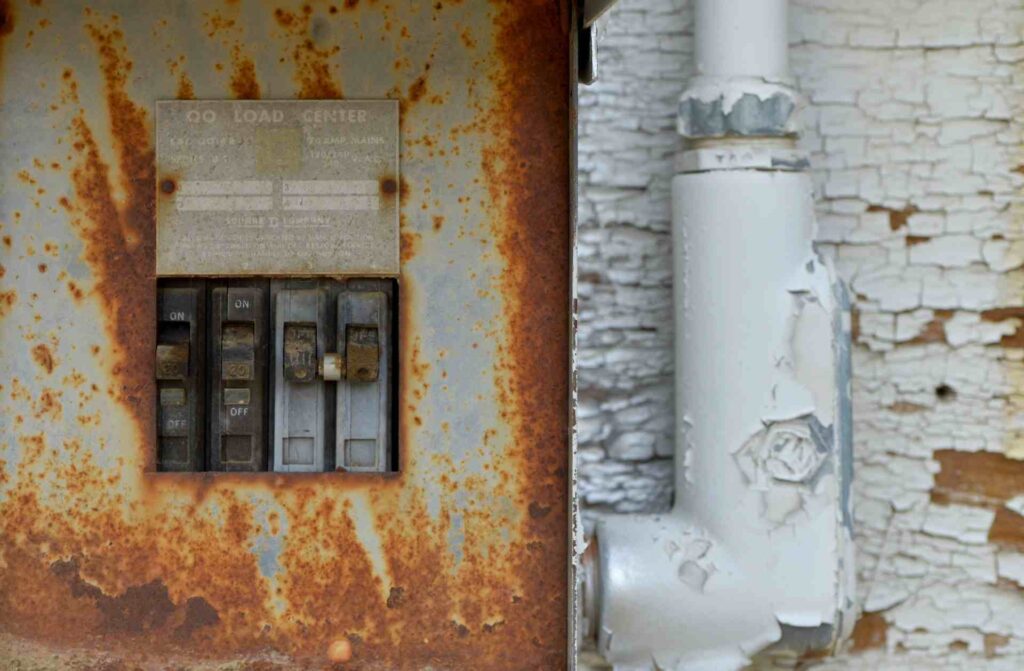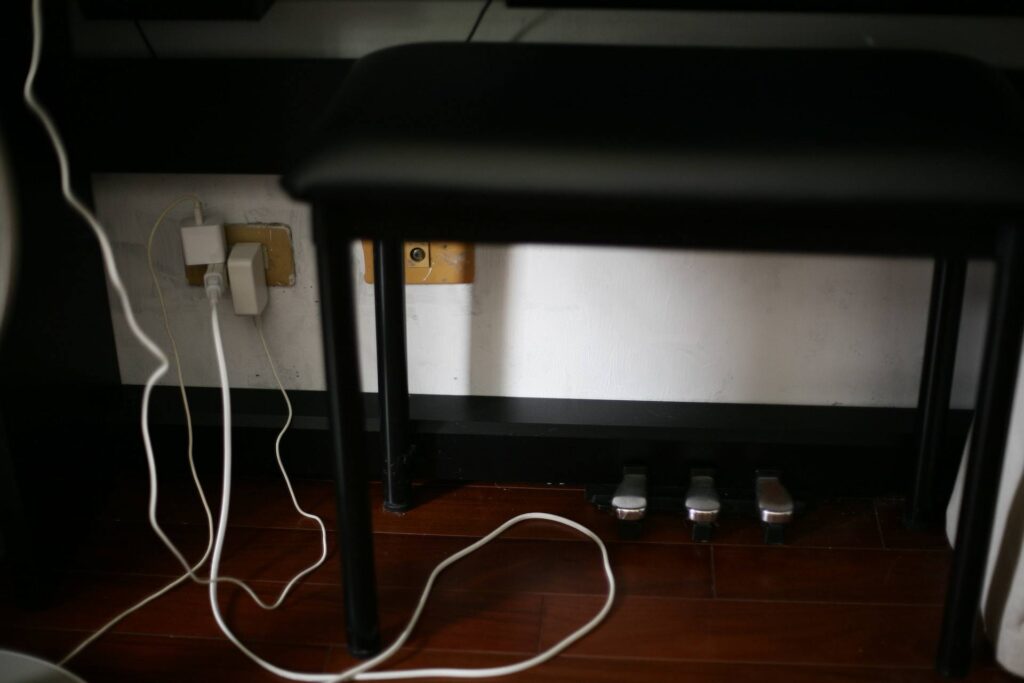Selling your home fast can be a rewarding experience, but it’s not always a straightforward process, especially when electrical problems come into play. As a homeowner, you may find yourself facing flickering lights, tripping circuit breakers, or even outdated wiring systems.
These electrical issues not only pose potential risks to your family’s safety but can also impact the value of your property and complicate your real estate transaction. In this article, we’ll delve into the world of selling a house with electrical problems, exploring the identification of these issues, the challenges they present, and the easy solution.
Identifying Electrical Problems in Your Home
Flickering Lights and Outlets
Flickering lights or outlets can be indicative of loose wiring connections, overloaded circuits, or faulty switches.
Frequent Circuit Breaker Tripping
Circuit breakers are designed to trip when circuits become overloaded or short-circuited. If your circuit breaker is frequently tripping, it could signify faulty modern appliances or an overloaded electrical system.
Burning Smells or Sizzling Noises
Burning smells or sizzling noises emitting from outlets, switches, or electrical panels are clear warning signs of dangerous electrical issues. These could be caused by overheating wires or faulty connections.
Hot Electrical Panels
Touching an electrical panel that feels excessively hot indicates an underlying problem, such as overloaded circuits or poor ventilation. An overheated electrical panel poses significant fire risks.
Non-Functioning Outlets or Switches
Outlets or switches that no longer function properly might be the result of wiring defects or worn-out components.
Old or Outdated Wiring Systems
Homes with outdated wiring systems, such as knob-and-tube wiring or aluminum wiring instead of modern solid copper wire, are at higher risk of electrical issues.
What Are the Implications of Electrical Issues?
Selling a home is often driven by various factors, such as moving to a new location, upgrading, or downsizing. However, when electrical problems come into play, these motivations can be further heightened due to the potential risks and challenges they present.
Safety Hazards for Occupants
Electrical problems pose a significant safety risk to the occupants of a home. Faulty wiring, overheated circuits, or malfunctioning outlets can lead to an electric shock.
Increased Risk of Electrical Fires
One of the most severe consequences of neglected electrical problems is the heightened risk of electrical fires. Overheated wiring or faulty connections can spark fires that spread rapidly, causing extensive damage to the property and posing life-threatening risks to everyone inside.
Potential Damage to Electrical Appliances and Devices
Faulty electrical systems can cause damage to electrical appliances and devices plugged into malfunctioning outlets.
Impacts on Property Value
Electrical problems have the potential to significantly impact a property’s value. When buyers discover a home with electrical issues during inspections, they may either demand extensive repairs or negotiate a lower selling price. This can hinder the seller’s ability to achieve their desired selling price and prolong the time the property spends on the market.
Difficulties with Home Insurance Coverage
Homeowners insurance is a crucial aspect of property ownership, providing protection against unexpected events. However, electrical problems can lead to difficulties in obtaining or maintaining insurance coverage. Insurers may view homes with known electrical issues as higher risks, resulting in increased premiums or even policy cancellations.
Facing these electrical problems might seem overwhelming, but you don’t have to tackle them alone. My Tennessee Home Solution (MTHS) offers a hassle-free solution for homeowners dealing with electrical issues. MTHS specializes in purchasing homes as-is, eliminating the need for costly repairs or the process of selling on the market.
Common Causes of Electrical Problems
Electrical problems in a house can arise from a variety of sources, often leading to inconvenience, safety concerns, and potential financial setbacks. You need to identify the root causes of these issues to address them effectively.
Faulty Wiring and Connections
Wiring that’s been installed improperly or has suffered wear and tear over time can lead to a host of electrical problems. Corroded, frayed, or loose wires can result in power fluctuations, outages, and safety hazards.
Overloaded Circuits
Modern homes rely heavily on electricity to power various devices and appliances. However, exceeding the electrical load of circuits by plugging in too many devices to electrical fixtures or using too many extension cords can lead to overheating and circuit breaker tripping. This not only affects the functionality of electrical systems but can also increase the risk of fires.
Aging Electrical Components
As a house ages, so do its electrical components. Outdated outlets, switches, aluminum wiring, and circuit breakers may not be equipped to handle the demands of modern technology. These aging components can result in inconsistent power supply, unsafe conditions, and the need for frequent repairs.
DIY Electrical Work
While DIY projects can be fulfilling, attempting electrical upgrades without proper knowledge and qualifications can be extremely dangerous. Inexperienced individuals may make mistakes that compromise the safety of the property and its occupants. Even experienced investors working on fix-and-flip projects might unknowingly compromise their safety by taking on electrical upgrades without professional assistance.
Environmental Factors
Environmental elements like water damage can wreak havoc on a home’s electrical system. Water infiltration can corrode wires, disrupt connections, and create short circuits. Electrical systems exposed to moisture are not only unsafe but can also experience rapid deterioration.
Risks of Ignoring Electrical Problems
Neglecting electrical issues within your home might offer temporary relief, but the consequences of inaction can be far-reaching and costly. As time passes, these electrical issues that could escalate will lead to both practical and legal complications.
Compounding Issues Over Time
What might start as a minor inconvenience, like a flickering light, can escalate into more severe electrical problems. Electrical issues that could worsen over time will potentially affect the broader scope of your home’s electrical system.
Escalating Repair Costs
Delaying necessary electrical repairs can result in more extensive damage, requiring larger-scale fixes. The longer issues persist, the more components may become compromised, leading to higher repair costs from commercial electrical contractors.
Legal and Liability Concerns
If you’re a landlord, failing to address electrical problems can lead to legal and liability issues. Many states impose legal responsibilities on landlords to ensure safe living conditions for tenants by passing an electrical inspection. Ignored electrical problems could result in tenant injuries, making the landlord liable for accidents stemming from neglect.
Impact on Negotiating Power in Real Estate Transactions
When selling a property, any existing electrical problems can impact your negotiating power. Buyers are likely to view electrical issues as potential red flags after an electrical inspection and may either demand extensive repairs or lower their offer. This can lead to prolonged negotiations and an overall less favorable selling experience.
How Can I Sell My House with Electrical Problems?
Selling a house with electrical problems might seem like a daunting task, but you have options. Let’s explore the two main avenues.
Selling on the Market
Listing a house with electrical problems on the real estate market is possible, though it may add some challenges. Potential buyers may be deterred by the need for repairs, leading to longer time on the market and lowered offers due to perceived risks.
Selling to a Cash Home Buyer
Opting for a cash home buyer offers a convenient and efficient solution tailored to houses with electrical issues. With a cash home buyer, you can experience:
- Stress-free selling process
- No need for costly repairs
- Expedited closing and cash offers
- Transparent and fair valuations
If you want to know how to sell a house with electrical problems to a cash home buyer, get in touch with the team at my Tennessee Home Solution. Our professionals are here to guide you every step of the way. We will buy your home as is, and close on your timeline!
Conclusion
Selling a house with electrical problems doesn’t have to be a daunting ordeal. While traditional market sales come with uncertainties and repair demands, cash home buyers like My Tennessee Home Solution offer a straightforward path to selling your property without the hassle of repairs and market complexities.
If you’re looking to make a smooth transaction, contact MTHS today.



